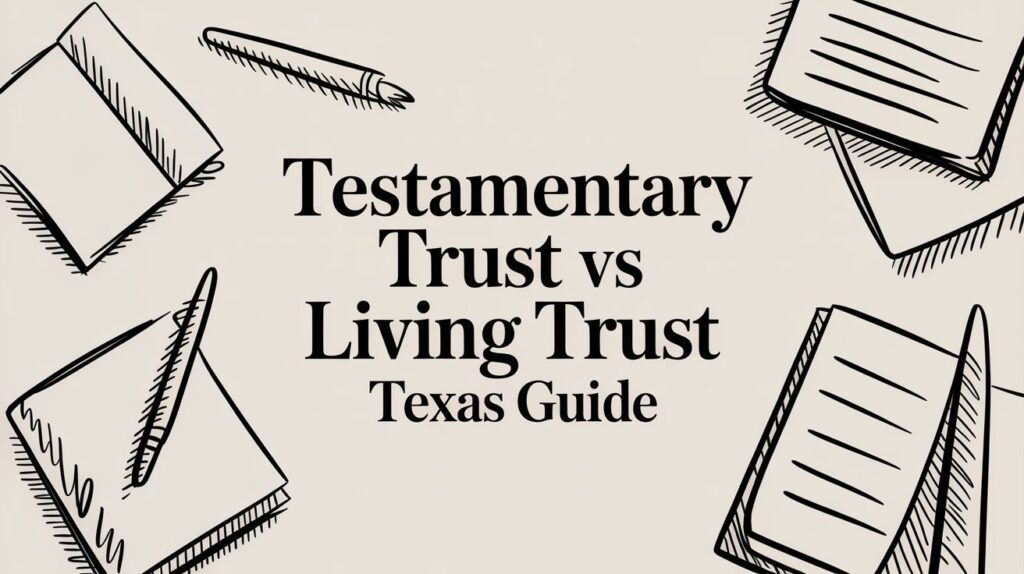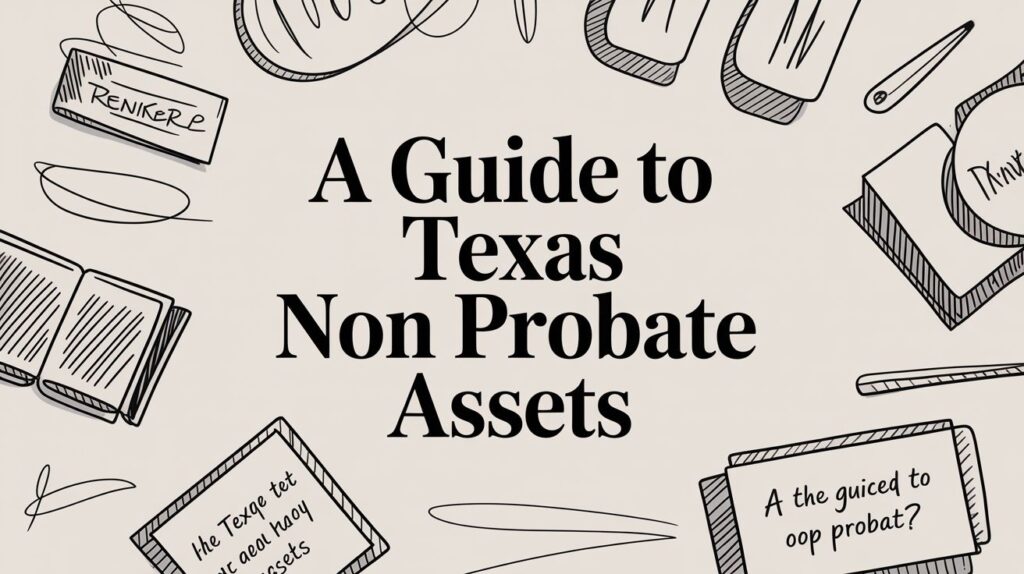If you’re wondering, “is there a statutory limit for probate in Texas?” or trying to understand how probate actually functions across the Lone Star State, one crucial piece of the puzzle is knowing how many statutory probate courts in Texas exist—and why they matter. Most people don’t think about court systems until they’re in one, and by then, the process can feel like a maze. Whether you’re facing the probate of a will, dealing with a contested estate, or trying to manage a decedent’s affairs, understanding statutory probate courts in Texas gives you a huge advantage.
This guide will take you through the structure, purpose, and uniqueness of statutory probate courts in Texas, while answering the big question: is there a statutory limit for probate in Texas? Along the way, we’ll sprinkle in real-life stories and practical insights to make sure this legal topic feels approachable, not intimidating.

What Are Statutory Probate Courts in Texas?
To answer how many statutory probate courts exist in Texas and what makes them different, we need to first clarify what “statutory probate courts” actually are. These courts are specialized courts created by the Texas Legislature to handle probate matters exclusively—or almost exclusively. They operate under specific statutory authority that outlines their jurisdiction, giving them a unique place in the Texas judicial system.
A Different Breed of Court
Unlike general county or district courts that juggle everything from criminal cases to contract disputes, statutory probate courts are laser-focused. Their primary responsibility is to oversee:
- Probate of wills
- Administration of estates
- Guardianship proceedings
- Mental health commitments
This streamlined focus allows these courts to manage high volumes of probate cases with efficiency and accuracy. Their processes are often more structured and predictable, which benefits both legal professionals and families.
Because they’re designed specifically for probate-related issues, judges in these courts tend to be probate law specialists. This specialization allows for faster rulings, more informed decisions, and a deeper understanding of complex estate scenarios. As a result, litigants often experience fewer delays and more consistent interpretations of the law compared to general courts.
How Many Statutory Probate Courts Are There in Texas?
Currently, there are 18 statutory probate courts in 11 counties across Texas. These courts are located in larger, more urban counties where the volume of probate cases justifies a specialized court system.
Counties with Statutory Probate Courts:
- Harris County
- Dallas County
- Tarrant County
- Bexar County
- Travis County
- Denton County
- El Paso County
- Hidalgo County
- Collin County
- Fort Bend County
- Galveston County
Some counties have multiple statutory probate courts—Harris County, for example, has four. These courts handle thousands of cases each year, from simple will probates to complex contested estate battles involving millions in assets.
Real Story: When a Statutory Probate Court Made All the Difference
Consider the case of James, a small business owner from Houston whose mother passed away without a will. Her estate included real estate, business assets, and a family dispute over who should serve as administrator. Had James filed in a general county court, the delays and lack of probate-specific knowledge could’ve dragged things out for years.
Instead, he filed in a statutory probate court in Harris County. The judge, well-versed in intestate succession laws and guardianship protocols, fast-tracked emergency decisions, appointed a neutral administrator, and helped resolve the dispute quickly. The result? Less conflict, fewer legal fees, and a clearer outcome for everyone involved.
What Makes Statutory Probate Courts in Texas Unique?
You may ask, “Why do we need special courts just for probate?” The answer lies in the complexity of probate law and the sheer number of moving parts. Here’s how statutory probate courts in Texas differ from other courts:
1. Jurisdiction Over Complex Matters
Statutory probate courts can handle:
- Independent and dependent administrations
- Determinations of heirship
- Trust litigation
- Guardianship oversight
- Mental health commitments
- Contested wills

General county courts, by contrast, may only handle basic will probate or uncontested estates—and often require the transfer of complicated matters to a district court.
2. Judicial Expertise
Judges in statutory probate courts deal with estate issues every day. They’re more comfortable with:
- Interpreting nuanced language in wills and trusts
- Overseeing multi-party disputes among heirs
- Addressing claims from creditors
- Managing guardianship proceedings for minors and incapacitated adults
This level of experience can lead to faster and more consistent rulings.
3. Ability to Handle Related Civil Cases
One of the biggest advantages is that statutory probate courts in Texas can also hear related civil actions. If there’s a dispute over property ownership, for instance, or if someone sues the estate over unpaid debts, the probate judge doesn’t have to punt the case to another court. It stays within the same courtroom—saving time, money, and confusion.
Is There a Statutory Limit for Probate in Texas?
Now let’s tackle the second part of this conversation: is there a statutory limit for probate in Texas?
Yes—and No.
There’s no absolute deadline by which probate must begin after someone dies. However, there are practical and legal time constraints you must consider:
1. Four-Year Rule for Will Probate
If a will exists, Texas law requires it to be admitted to probate within four years of the decedent’s death. If you miss that deadline, you can’t probate the will under standard procedures—but you may still be able to use it as evidence in a proceeding to determine heirs.
This rule exists to prevent abuse and stale claims and is a critical statutory limit for probate in Texas.
2. Deadlines for Creditor Claims
Once an estate is opened, creditors generally have four months to submit claims. Executors also have responsibilities to post notices and manage timelines set by the court. Failure to follow these rules could expose the estate—or the executor personally—to liability.

3. Statutory Deadlines for Heirship Proceedings
If there’s no will and the estate needs formal probate, the process for determining heirs follows a strict timeline. Missing hearings or failing to respond to notices can delay the process significantly or lead to court-appointed administrators stepping in.
Bottom Line
While there’s some flexibility in when probate starts, Texas law does impose limits. If you wait too long, you may lose the right to probate the will altogether or face significant complications in estate administration.
When Should You File in a Statutory Probate Court?
You might be wondering: “Do I need to use a statutory probate court, or can I just file in my local county court?” The answer depends on the complexity of the estate and the unique legal challenges it may present.
Use a Statutory Probate Court If:
- The estate is large or contains complex assets (e.g., real estate, business holdings)
- There are multiple heirs and potential for conflict
- There’s no will and a full heirship proceeding is needed
- A trust is involved, and the trustee’s actions are being questioned
- Guardianship is required for minors or incapacitated adults
In smaller counties without a statutory probate court, you’ll typically file in the constitutional county court, or a county court at law, which may have limited jurisdiction. These courts can still handle basic probates but may need to refer complex issues to higher courts.
Can You Transfer a Case to a Statutory Probate Court?
Absolutely. If your county lacks a statutory probate court, and the case becomes too complex, you or your attorney can request a transfer to a probate court in a neighboring county—assuming that court agrees to hear it. Transfers are generally reserved for cases involving high-value estates, interstate assets, or overlapping legal questions.
This option is especially useful when the estate involves property or parties across multiple counties, making coordination between courts challenging.
Why Texas Took the Statutory Route
Texas is one of the few states with dedicated probate courts—and that’s no accident. With large cities like Houston, Dallas, and San Antonio generating thousands of probate cases each year, the legislature realized that specialized courts would improve efficiency, reduce backlogs, and provide a higher level of legal understanding. It was a proactive solution to accommodate the state’s growing population and increasingly complex estate scenarios.
The creation of these courts also relieved pressure from general county courts, allowing judges to focus on non-probate matters with greater attention and speed.
It also reflects the state’s commitment to individualized justice. Probate isn’t a one-size-fits-all process, and statutory probate courts in Texas recognize that each family’s story, assets, and disputes are unique. These courts provide a forum where nuanced cases receive the scrutiny and care they deserve.

Conclusion: What This Means for You
If you’re dealing with probate in Texas—or expect to in the future—understanding the statutory probate court system and the statutory limit for probate in Texas gives you a huge head start. Knowing whether your county has a dedicated probate court can help you file more efficiently, reduce legal risk, and ensure smoother outcomes for everyone involved.
Most importantly, if a loved one dies, don’t wait to act. The clock starts ticking the day they pass. Wills need to be probated within four years. Heirship issues become harder to resolve with time. And the longer an estate sits unadministered, the more vulnerable it becomes to legal complications, creditor claims, and family disputes.
By working with experienced probate counsel and choosing the right court, you can protect your loved one’s legacy, fulfill their wishes, and move forward with confidence—knowing you’ve done things the right way under Texas law.








